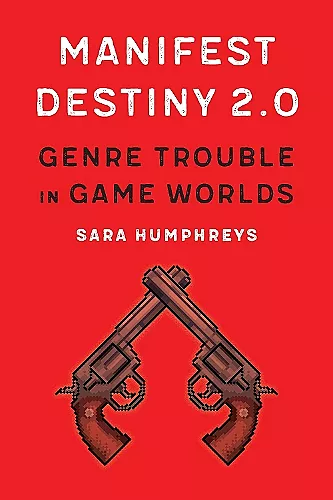Manifest Destiny 2.0
Genre Trouble in Game Worlds
Format:Paperback
Publisher:University of Nebraska Press
Published:1st Feb '21
Currently unavailable, and unfortunately no date known when it will be back

At a time when print and film have shown the classic Western and noir genres to be racist, heteronormative, and neocolonial, Sara Humphreys’s Manifest Destiny 2.0 asks why these genres endure so prolifically in the video game market. While video games provide a radically new and exciting medium for storytelling, most game narratives do not offer fresh ways of understanding the world.
Video games with complex storylines are based on enduring American literary genres that disseminate problematic ideologies, quelling cultural anxieties over economic, racial, and gender inequality through the institutional acceptance and performance of Anglo cultural, racial, and economic superiority. Although game critics and scholars recognize how genres structure games and gameplay, the concept of genre continues to be viewed as a largely invisible power, subordinate to the computational processes of programming, graphics, and the making of a multimillion-dollar best seller.
Investigating the social and cultural implications of the Western and noir genres in video games through two case studies—the best-selling games Red Dead Redemption (2010) and L.A. Noire (2011)—Humphreys demonstrates how the frontier myth continues to circulate exceptionalist versions of the United States. Video games spread the neoliberal and neocolonial ideologies of the genres even as they create a new form of performative literacy that intensifies the genres well beyond their originating historical contexts. Manifest Destiny 2.0 joins the growing body of scholarship dedicated to the historical, theoretical, critical, and cultural analysis of video games.
“[Sara Humphreys] demonstrates the ways in which games and, more specifically, reward systems are aligned with troubling ideological positions related to race, class, and gender. . . . [She] draws on a broad range of scholars and theorists of narrative [with the result being] a rich network of sources that help connect the functioning of game-based storytelling to a broader understanding of narrative.”—Holly Willis, author of Fast Forward: The Future(s) of the Cinematic Arts
ISBN: 9781496224217
Dimensions: unknown
Weight: unknown
192 pages